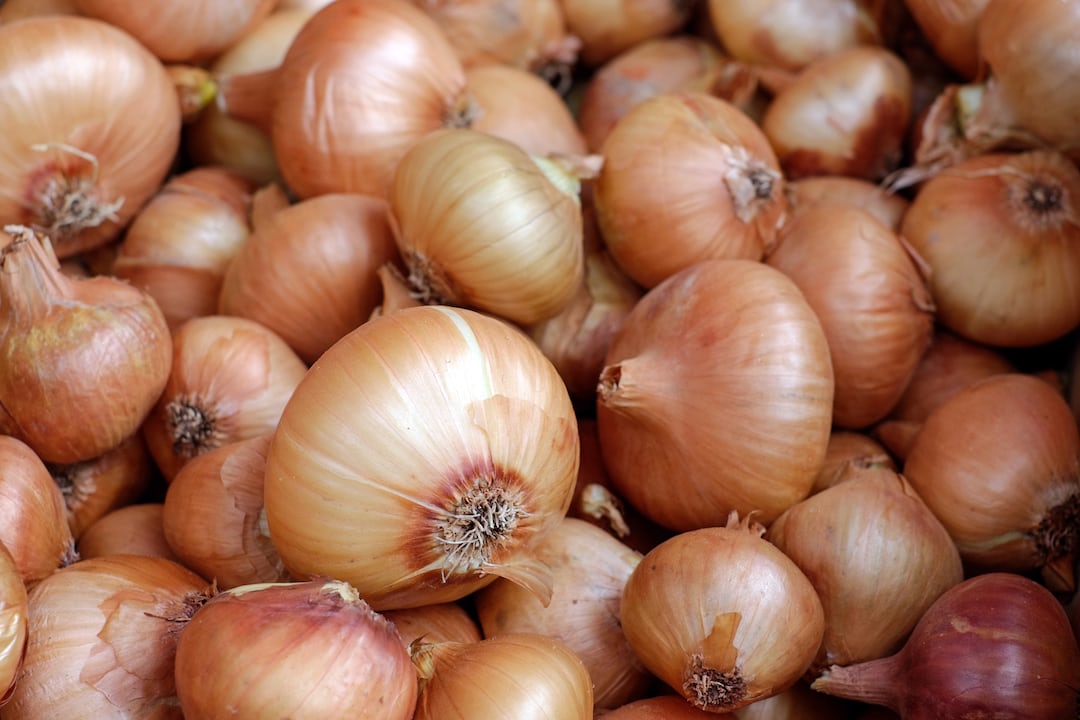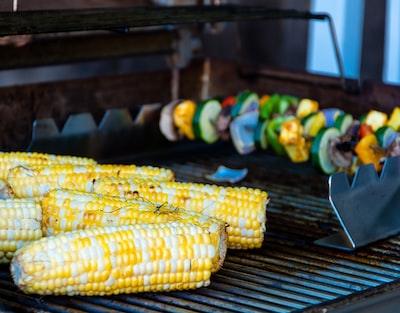Growing Onions: Simple Techniques for a Flavorful Harvest

Growing Onions
Growing onions rewards eager gardeners with bold flavor, long storage life, and culinary versatility. Timing matters—plant onion sets early in spring and choose a sunny spot with loose, well-drained soil to maximize your crop. Ready to roll up your sleeves? The satisfaction of harvesting your own onions awaits below.
🌱 Growing Onions Quick Cheatsheet
🧅 Varieties & Selection
- 🟤 Long-day onions: For northern climates (sunlight 14-16 hrs/day)
- 🟡 Short-day onions: For southern areas (sunlight 10-12 hrs/day)
- ⚪ Intermediate-day onions: For moderate climates (sunlight 12-14 hrs/day)
🗓️ Planting Time & Method
- 📅 Start seeds indoors 8-10 weeks before last frost
- 🌡️ Outdoor sowing: soil temp min 40°F (4°C)
- 🔻 Plant onion sets 1-1½ inches (2.5-4 cm) deep, spaced 4-6 inches (10-15 cm)
- 🌤️ Choose sunny location, minimum 6 hrs direct sun/day
🔨 Soil & Fertilization
- 🏞️ Loose, well-drained loamy soil (pH 6.0-7.0)
- ♻️ Pre-plant compost: 2 inches (5 cm) worked into topsoil
- 🌿 Feed monthly: nitrogen-rich fertilizer (e.g., fish emulsion)
💦 Watering Guidelines
- 🚿 Regular watering: about 1 inch (2.5 cm) water/week
- ⚠️ Stop watering once tops yellow and bulbs mature
🐛 Pest & Disease Prevention
- 🍃 Mulch lightly to deter weeds & prevent disease
- 🌱 Rotate crops annually to avoid onion pests
- 🦟 Inspect regularly for onion flies, thrips, fungal growth
📈 Harvesting & Storage
- 🛠️ Harvest when necks weaken; foliage browns and falls over (about 90-120 days)
- ☀️ Cure bulbs 1-2 weeks in dry area; store at 32-40°F (0-4°C), humidity 65-70%
✨ Nutrition & Benefits
- 💪 Rich in vitamin C, antioxidants, dietary fiber
- 🍏 Contributes effectively to food self-sufficiency & home gardening yields

Choosing the Right Onion for Your Plot
Onions may not be glamorous, but in a good garden, they are damn near indispensable. Before planting, select onions suited to your climate zone and daylight conditions. Short-day onions thrive in southern climates, liking days under 12 hours of sun. Further north, opt for intermediate or long-day varieties.
I once planted Vidalia onions in my chilly Michigan backyard—total disaster, complete waste. Now I religiously stick with varieties like Walla Walla and Red Wing for reliable results.
Starting from Seeds or Sets
You have two good paths: seeds or onion sets. Seeds offer more varieties but demand patience, timing, and finesse, exactly what the Zen master within craves. Onion sets—small bulbs planted directly—grant quick gratification and fewer tantrums, ideal if life's pace refuses to slow.
Growing Onions from Seeds:
- Sow seeds indoors 8-10 weeks before transplanting outdoors.
- Use seed starter trays in finely milled, sterile potting mix.
- Keep the temperature around 70°F (21°C) until germination, usually 7-10 days.
Growing Onions from Sets:
- Directly plant these miniature bulbs in the garden in early spring, space 4–6 inches (10–15 cm) apart.
- Position them about 1-inch (2.5 cm) deep, with the pointed tip facing skyward.
Location, Soil, and Growing Conditions
Onions are a bit particular about real estate choices—give them plenty of sunshine, ideally six to eight hours daily. A failure in sunlight translates directly to a business failure in the bulb department.
A rich, loamy soil pulls no punches; ensure excellent drainage, or your onions will sulk and rot. Amend generously with compost or aged manure before planting.
Did you know: "Well-fed onions grow bigger bulbs, so adding compost at planting time can boost bulb size significantly."
The Art of Watering and Feeding
As onions don't appreciate soggy toes, water deeply once per week, roughly 1-inch (2.5 cm) at each interval. Ensure consistent moisture but allow soil to dry slightly between drinks.
A nitrogen-rich fertilizer early in onion life encourages strong leaf and root growth. But pull back on nitrogen mid-season; too much late nitrogen tells onions "all top growth, forget growing bulbs."
Weed Control and Maintenance
Weeds irritate us all, but onions especially despise competition for nutrients and light. Regular, gentle cultivation around onion rows takes care of unwelcome intruders without damaging fragile roots.
A thin layer of straw mulch goes a long way in keeping weeds smothered and moisture stable. A win-win if I've ever seen one.
Harvesting Perfect Onions
When onions mature, usually around 90-110 days after planting, their leafy tops politely bend and turn yellow. This is their quiet way of telling you, "dig me up, I've done my part."
- Lift onions carefully with a garden fork, gently shaking loose excess soil.
- Cure bulbs in a dry, well-ventilated place out of direct sunlight for 2–3 weeks.
- Once tops completely dry, trim leaves 1-inch (2.5 cm) from the bulb and store onions in mesh bags or baskets. Keep temperatures between 32–40°F (0–4°C) for maximum storage life.
I recall harvesting my first crop—a cooler filled magically to the brim with crisp, pungent beauties. That moment never gets old. Growing onions, like most great skills, combines patience, observation, and the sheer joy of witnessing simplicity at work.
Frequently Asked Questions About Growing Onions
What is the optimal time to plant onion sets?
Plant onion sets in early spring once temperatures consistently reach around 45°F (7°C). An early start allows onions to develop properly before summer heat sets in.
How deep should onion bulbs be planted?
Set your onion bulbs shallowly into the soil—typically 1 inch (2.5 cm) deep—covering them lightly while leaving the upper tip visible. Plant bulbs 4 to 5 inches (10 to 13 cm) apart, in rows spaced approximately 12 to 16 inches (30 to 40 cm).
Which soil conditions favor onion growth?
Onions thrive best in well-drained, loamy soils rich in organic matter. Amend heavy clay soils with compost to improve drainage. Aim for a soil pH between 6.0 and 6.8 for optimal bulb development.
How frequently should onions be watered?
Water onions consistently, about once a week, providing approximately 1 inch (2.5 cm) of water. Avoid overwatering, which can encourage fungal diseases, and reduce watering as harvest nears to encourage proper bulb formation.
When and how should onions be fertilized?
Feed onions with a balanced organic vegetable fertilizer at planting and again when bulbs begin to enlarge. Avoid high-nitrogen fertilizers late in the growing season, as they can encourage foliage growth over bulb formation.
How can onion maturity be identified?
Onions signal readiness for harvest once the tops turn yellow and fall over. Pull bulbs gently from the soil and let them dry in the sun for a few days before bringing them indoors for curing.
How should freshly harvested onions be stored?
Store cured onions in a cool, dry place with good airflow, ideally around 32–40°F (0–4°C). Properly stored onions can keep for several months, providing flavor long after harvesting.
Growing onions rewards patience and a respect for simplicity. Remember, onions like sunny positions, well-drained soil, and consistent moisture. Respect their need for space—crowding weakens their growth. Mulch wisely, keep weeds at bay, and harvest gently once their tops begin to yellow. Master the basics, and your garden will provide abundant, flavorful onions that'll elevate your cooking, season after season.
Find out which plants will thrive in your garden!
Answer a few fun questions and get custom plant recommendations perfect for your space. Let’s grow something amazing together!

start your season








